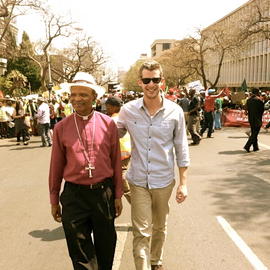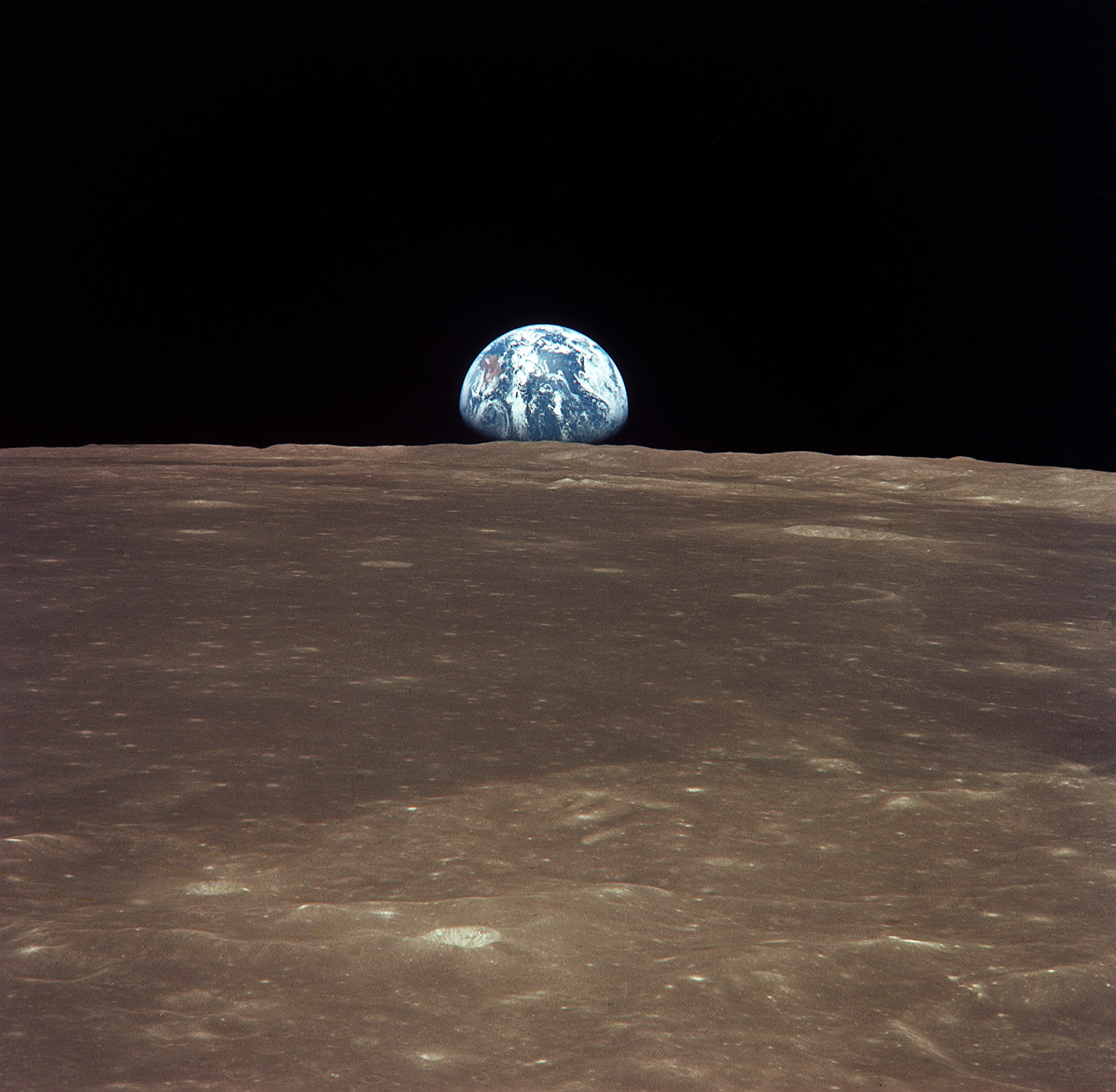Erik de Ridder is a One Young World Ambasssador from South Africa and is a founding member of InkuluFreeHeid. Here he writes about Ron Garan, a One Young World Counsellor at the 2014 Summit in Dublin.
During the course of my life, I have continuously looked to the realms of astronomy and philosophy for inspiration. The reason for this is rooted in the potential for these realms to help us understand how to act on some of the world’s biggest, most intractable problems, including climate change, war and inequality. I believe tremendous gains can be achieved through a wider appreciation of the orbital perspective: we are all aboard spaceship Earth, and to survive, we need to look to the best of our nature, and collaborate to succeed.
In Phaedo (360 B.C.E), Plato wrote 'Man must rise above Earth to the top of the atmosphere and beyond, for only then will he fully understand the world in which he lives'. One hopes that once we fully understand and appreciate the world in which we live, we will be equipped to deal with its challenges.
The "Earthrise" photograph taken during Apollo 8 in 1968, captured 2326 years after Plato’s dialogue and demonstrated this maxim to full effect: that simple image changed how humanity viewed the world. When Buckminster Fuller coined the term ‘spaceship earth’ in the same year, 1968, there is little doubt he drew inspiration from those images. Why is the image so ubiquitous, so powerful a force in the human imagination? More than most other events in history, it made real the togetherness of all humanity and made clear the limitations of our planet and its resources in a way that was accessible to billions of people.
Looking back at those epochal events, what lessons can we learn, or re-learn, and act on to improve how our world works?
[[[image-1 large]]]
We know that conflict is driven, and exacerbated, by sectarianism, resource scarcity and inequality. The challenges of sustainability, conflict and inequality are interdependent. Appreciating our common reliance or interdependence means taking the cosmic view: we are all together, and we must work together to address our common challenges. There is no reason to believe the global economy cannot suitably include all people no matter their station in life, and why we cannot eradicate poverty in the next century. If we want to live in a world of equal opportunity, one that is peaceful and where all are taken care of in harmony with the environment, then we must embrace our differences, and appreciate our diversity.
It is common purpose amongst the nations of the world that humanity faces unprecedented crisis due to unsustainable modes of economic growth, and the growing afflictions of conflict and war, no matter their geography, affect everyone. The lack of the ‘orbital perspective’ in our politics is putting to the test the viability of the nation-state system: we are seeing entire states collapse under the pressure of sectarian violence, conflicts rooted in ignorance of the fact that more can be achieved through cooperation, dialogue and coexistence. The lack of the ‘orbital perspective’ in our economics is threatening the very conception of human progress: we have failed to properly account for the impact of economic development and unfettered resource extraction on our fragile planetary ecosystem, and the cost of this error might be our survival.
A key lesson of the orbital perspective is that we are more powerful when we are focused on the common challenges that unite us, and our impact is multiplied when we build around common purpose.
It is clear that the economics of life on earth needs to change – this can and will only happen if we are willing to upturn conventional thinking, and embrace the ‘orbital perspective’. That is, accept that crises globally have reached current levels because for too long we have ignored our interdependence, and failed to come to grips with the consequences of our actions. The resolution of these crises lies within our power. We need to accept that the terms of our interdependence should include a commitment to change our approach to addressing global problems. Cooperation and coexistence, commitments to work together, should no longer be considered optional; they should be omnipresent in the way we work. Technology means cooperation is now made easier and less costly than ever before.
What will it take to stem off further crisis? We know that power is more dispersed: governments cannot act alone; partnership with industry, civil society and citizens is an essential ingredient for success. Accessibility to technology means that power is no longer concentrated, and to achieve results, we need to be more inclusive to exercise it. This means empowering people across all sectors to improve our world, and convincing those bent on using these tools to organise around violent objectives to concede the senselessness of actions aimed to destroy rather than build. It means that progress will only be made through partnership. Unilateral action will not be effective. Working together means we can do more than working apart.
We can learn as much from adopting the orbital perspective: the world’s biggest problems appear less intractable, and imminently more solvable, when viewed from space. When we are able to come together, in recognition of our common humanity, we can most certainly address these challenges head on. French pilot Antoine de Saint-Exupéry, once wrote "If you want to build a ship, don’t drum up people together to collect wood and don’t assign them tasks and work, but rather teach them to long for the endless immensity of the sea". This is what the cosmic view is ultimately about, training ourselves to once again long for a better world, and be more ambitious and far reaching in our collaborative efforts to make that better world a reality.
You can watch videos from the One Young World Summit 2014 in Dublin on our YouTube channel.

